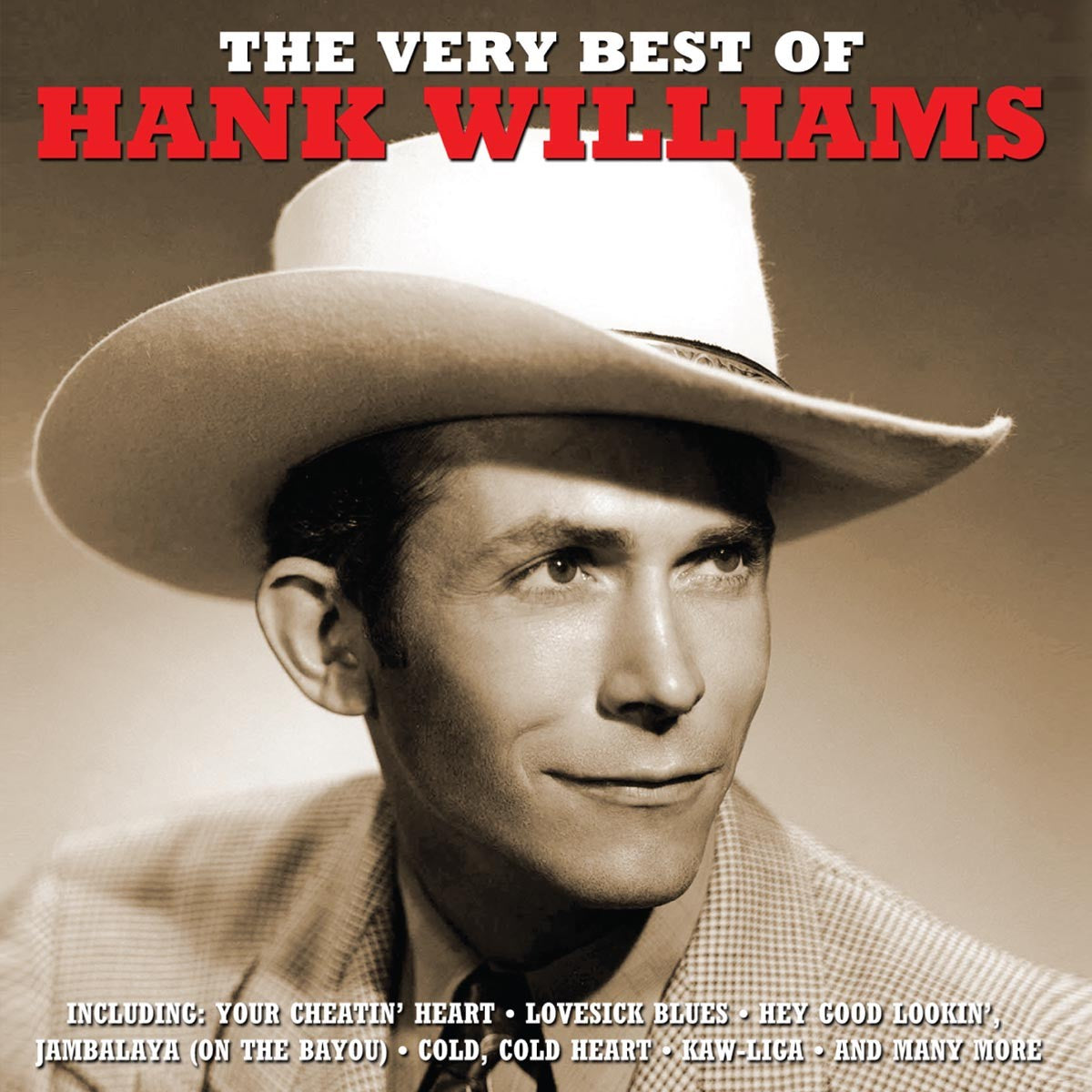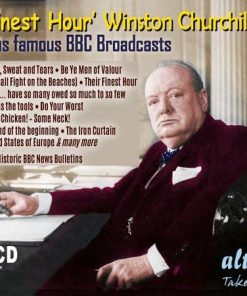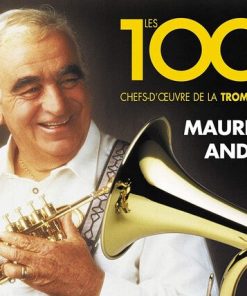HANK WILLIAMS: Very Best Of (2 CDS) NOT NOW
$ 7,99 $ 4,79

It seems astonishing today that the writer of some of country music’s best-loved and most enduring songs, Hank Williams, died after a recording career lasting less than six years. But the writer of such country standards as ‘Your Cheatin’ Heart’, ‘Hey, Good Lookin’’, ‘I Can’t Help It (If I’m Still In Love With You)’ and ‘Jambalaya (On The Bayou)’ did indeed die from a heart attack in 1953 while a passenger in the back seat of his Cadillac. He was just 29.
Born Hiram Williams in September 1923 in Mount Olive, Alabama, his early background lived up to the mournful nature that typifies country and blues music. His family never had much money and although his father had worked as a logger he spent much of Hank’s childhood ill in a Veterans Administration hospital. Hank’s mother made ends meet by running rooming houses while she also played the organ in their local church and taught her son gospel songs. Hank himself suffered from the spinal condition spina bifida, which meant he could not engage in physical activity like other kids his age; this would also limit the careers open to him.
Hank had taught himself to play the guitar before he was a teenager, mostly by watching other guitarists. He learned folk and country and, from an African-American street musician Rufus Payne, the blues. He was just 13 when he made his radio debut. A year later he put together his own band, playing at hoedowns, and won a local talent contest competition with his composition ‘WPA Blues’ before forming Hank Williams’ Original Drifting Cowboys in the early Forties.
In 1943 he married Audrey Mae Sheppard, the mother of a young daughter. Sheppard started playing bass and performing in his band and, in 1949, they had a son, Hank Williams Jr.
Hank recorded four songs for Sterling Records in 1946, one of which, ‘Honky Tonkin’’, grabbed the attention of MGM Records in Nashville. He signed with them in 1947 and released ‘Move It On Over’ which kicks off this collection and which became a huge country hit, reaching Number 4. A 12-bar blues written by Williams, this song is considered to have been influential on early rock’n’roll.
After a few more low-charting hits, in 1949 he released his version of the 1922 Clifford Friend and Irving Mills song ‘Lovesick Blues’. Williams’ version became a country smash in 1950, crossing over to pop audiences and gaining him a place in the Grand Ole Opry. He joined the Opry’s first European tour, performing at US military bases in Europe and the Azores.
This collection contains all seven hit songs Williams had in 1949 after ‘Lovesick Blues’, including ‘Wedding Bells’, ‘Mind Your Own Business’, ‘You’re Gonna Change (Or I’m Gonna Leave)’ and ‘My Bucket’s Got A Hole in It’.
Hank went on to become country music’s top artist, 1950 bringing three Number 1s in ‘Moanin’ The Blues’, ‘Long Gone Lonesome Blues’ and ‘Why Don’t You Love Me’. Other Top 10 hits of the year which feature on CD 1 are ‘I Just Don’t Like This Kind Of Living’, ‘My Son Calls Another Man Daddy’, ‘Why Should We Try Any More?’ and ‘Nobody’s Lonesome For Me’.
Success continued in 1951 with ‘Hey, Good Lookin’’, ‘Cold, Cold Heart’ (both Number 1s) and ‘I Can’t Help It (If I’m Still In Love With You)’, while 1952 brought three Number 2s including ‘Honky Tonk Blues’ and two more Number 1s, ‘Jambalaya’, and ‘I’ll Never Get Out Of This World Alive’.
But touring saw Williams develop an increasing dependence on alcohol, which he’d started using in order to relieve back pain. As the titles of some songs suggest, he was living the country/blues cliché and heartbreak dogged his life. As his alcohol dependence grew, the Opry fired him, and in 1952 he and Sheppard divorced. Putting on weight, he suffered a minor heart attack while visiting his sister in Florida.
In 1952, Williams married a younger woman named Billie Jean Jones and, suffering increasingly from pain, hired a bogus doctor who compounded his already serious physical problems with potentially lethal drugs. On New Year’s Day 1953, Williams suffered a fatal heart attack while being driven in the back of his powder blue Cadillac.
Three further Number 1 hits, ‘Kaw-Liga’, ‘Take These Chains From My Heart’ and ‘Your Cheatin’ Heart’, were released after his death in 1953.
Hank Williams died after writing a string of what would become very influential songs. But, as is often the case, his early death enhanced his legend. He was close to the farming roots that Nashville was soon to leave behind, but was the creator of many enduring songs which have become standards today, performed by such luminaries as Linda Ronstadt and Bob Dylan. It is impossible to name each well-known song included on this 2CD collection – so just sit down and let the hits roll over you!

CD 1
1. Move It On Over
2. Mansion On The Hill
3. Lovesick Blues
4. Wedding Bells
5. Mind Your Own Business
6. You’re Gonna Change (Or I’m Gonna Leave)
7. Lost Highway Hank Williams
8. My Bucket’s Got A Hole In It
9. I’m So Lonesome I Could Cry
10. I Just Don’t Like This Kind Of Living
11. Long Gone Lonesome Blues
12. Why Don’t You Love Me?
13. My Son Calls Another Man Daddy
14. Why Should We Try Anymore?
15. They’ll Never Take Her Love From Me
16. Moanin’ The Blues
17. Nobody’s Lonesome For Me
18. Dear John
19. Cold, Cold Heart
20. Howlin’ At The Moon
21. Pan American
22. Rootie Tootie
23. Honky Tonkin’
24. The Blues Come Around
25. Tennessee Border
CD 2
1. I Can’t Help It (If I’m Still In Love With You)
2. Hey, Good Lookin’
3. Crazy Heart
4. (I Heard That) Lonesome Whistle
5. Baby, We’re Really In Love
6. Ramblin’ Man
7. Honky Tonk Blues
8. Half As Much
9. I’m Sorry For You My Friend
10. Jambalaya (On The Bayou)
11. Window Shopping
12. Settin’ The Woods On Fire
13. You Win Again
14. Kaw-Liga
15. I’ll Never Get Out Of This World Alive
16. Your Cheatin’ Heart
17. Take These Chains From My Heart
18. I Won’t Be Home No More
19. I Saw The Light
20. Weary Blues From Waitin’
21. I’m A Long Gone Daddy
22. I’ll Be A Bachelor ‘Til I Die
23. Beyond The Sunset
24. I Can’t Get You Off My Mind
25. (Last Night) I Heard You Crying In Your Sleep
| PERFORMERS | HANK WILLIAMS |
|---|
Fast Shipping and Professional Packing
Due to our longstanding partnership with UPS FedEx DHL and other leading international carriers, we are able to provide a range of shipping options. Our warehouse staff are highly trained to pack your goods exactly according to the specifications that we supply. Your goods will undergo a thorough examination and will be safely packaged prior to being sent out. Everyday we deliver hundreds of packages to our customers from all over the world. This is an indication of our dedication to being the largest online retailer worldwide. Warehouses and distribution centers can be located in Europe as well as the USA.
Orders with more than 1 item are assigned processing periods for each item.
Before shipment, all ordered products will be thoroughly inspected. Today, most orders will be shipped within 48 hours. The estimated delivery time is between 3-7 days.
Returns
The stock is constantly changing. It's not entirely managed by us since we are involved with multiple parties such as the factory and our storage. The actual stock can fluctuate at any time. Please understand it may happen that your order will be out of stock when the order is placed.
Our policy is valid for 30 days. If you haven't received your product within 30 days, we're not able to issue either a return or exchange.
You are able to return a product if it is unused and in the same condition when you received it. It must also still remain in the original packaging.





















































